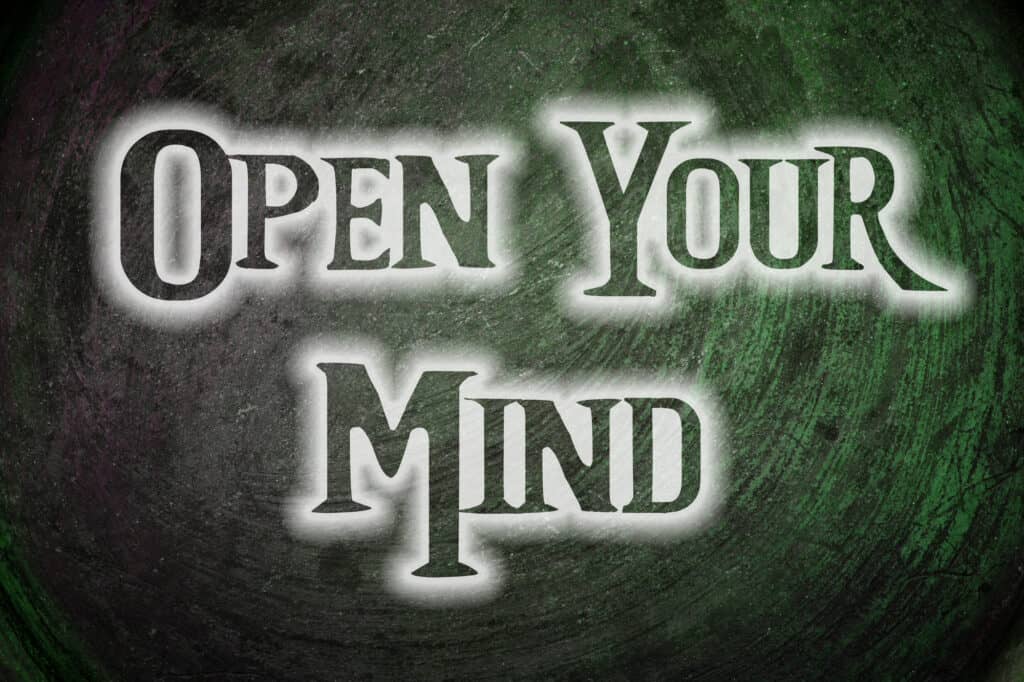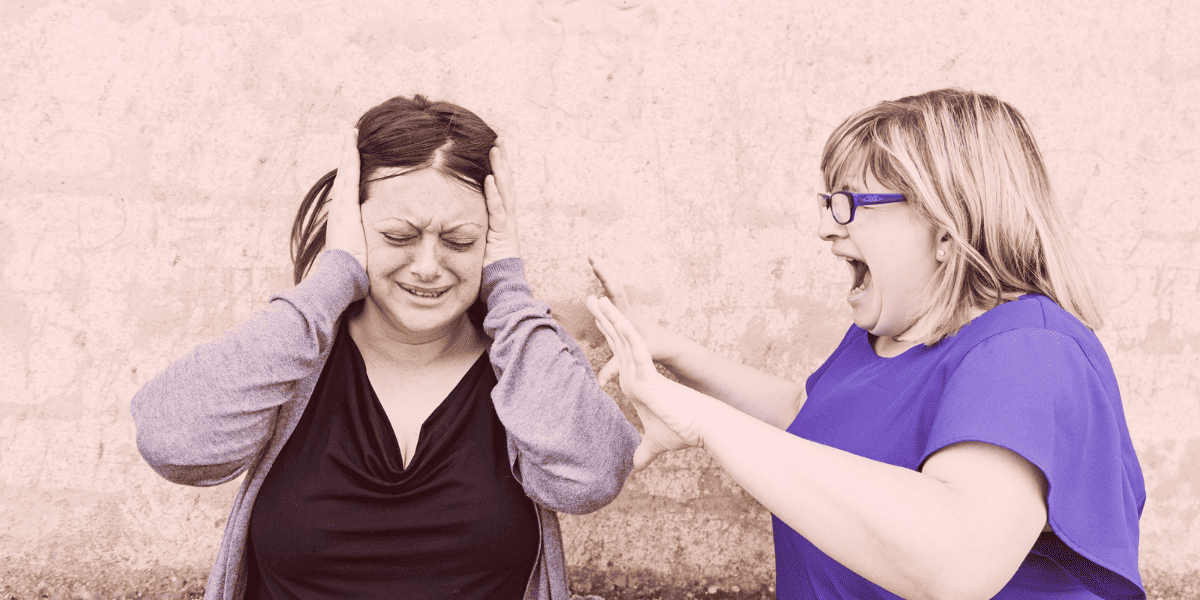EDITOR’S SUMMARY: Feeling “emotionally squeezed” can be debilitating—so much so, you feel trapped in a perception of impending difficulty, with no escape. From where did this monster arise, you may have asked yourself? Whether it stemmed from external forces, and you feel pinned to the wall amidst other people’s adamant opinions, or held captive by the workings of your own mind, climbing out of the deep well of this “Alice in Wonderland”-esque rabbit hole is your ticket to freedom.
Written by Carter Trent
Edited by Nicki Steinberger, Ph.D.
Expectations pushed on you from family and friends, as well as strangers and society in general, can feel unrelentingly stressful. Other people’s judgments about the “right thing to do,” dished out in a controlling or blame-oriented manner, can put a monumental strain on your mental health—”emotional, social, and psychological well-being.” If you experienced this type of pressure during the COVID-19 pandemic, when governments were implementing lockdowns—driving isolation, and the loss of jobs,—as well as forced masking and vaccination requirements, you were not alone.
The situation was so out of hand, it got to the point where adults were policing the behavior of others, as in the case of mask-wearing. Some even resorted to bullying and shaming tactics. As a result, in 2021, nearly 40% of adults reported a mental health disorder, such as depression.
Let’s face it … Pandemic aside, daily social pressures are a reality. For example, if you feel it’s important to eat organic, farm-fresh fare for your health, but family and friends don’t think twice about consuming highly-processed foods, they may not understand why you hesitate to join them for a super-sized meal at your local fast food joint. After all, 73% of the U.S. food supply is ultra-processed, suggesting there’s wide acceptance of these inflammatory foods throughout the general population.
The compulsion to conform to mainstream culture remains persistent, and if the level of social pressure reaches astronomical proportions, as it did from 2020 to 2023, what will you do? It helps to understand why, and how demands from family, friends, and strangers affect your psychological health.
Family dynamics are one of the most substantial influences on your well-being. This makes sense given the importance of family in shaping your experiences, beliefs, and behaviors, as well as the emotional, physical, and economic support they may provide. Supportive parents offering care, welcomed advice, acceptance, and love, can reduce the risk of mental illness. Meanwhile, a family environment marked by fighting, neglect, or abuse, heighten the possibility of inflicting psychological damage.
Even as an adult, you can be affected by your parents, and insidious pressure to align with their decisions can assault your mood, outlook on life, and the way you feel about yourself. Psychologist and author Jeffrey Bernstein explained, “Parents who are highly critical or dismissive of their adult child’s feelings or accomplishments can cause emotional harm.”
Dr. Bernstein continued:
“When adult children sense criticism and invalidation, they can develop feelings of abandonment or rejection. Using guilt, shame, or other manipulative tactics to control an adult child’s behavior can cause significant emotional harm. This can make the child feel like they are not in control of their own life and lead to feelings of resentment and anger. Lastly, parents who do not respect their adult child’s boundaries and independence can run the risk of having their adult children alienate them.”
Are You On the “Bandwagon?”
Parental expectations can echo mainstream culture, since people may embrace behaviors or beliefs simply because they see others doing them. This is called the bandwagon effect, and has the power to convince you that the right decision to follow is the one widely accepted in society. This is due to a number of subtle psychological factors, such as a desire to fit in, an assumption that others know something you don’t, or the fear of missing out. This effect can stop you from evaluating broader societal behaviors on their own merits, and what they might mean for you and your specific situation.
An example of bandwagoning was the pressure to wear a mask during the COVID-19 pandemic. Bandwagoning’s effects may also explain why some folks in the medical field rallied for COVID-19 vaccine mandates, despite others voicing concern over their safety. In “The Bandwagons of Medicine,” published by the scientific journal, Perspectives in Biology and Medicine, the authors spoke about medical progress:
“Although medical progress has been extraordinary, its path has often been directed by the overwhelming acceptance of unproved but popular ideas—the bandwagons of medicine. Some of these ideas eventually prove valid, and their uncritical acceptance is belatedly justified. More often, however, they are disproved and abandoned, or replaced by another bandwagon. A new idea can frequently help overcome stagnation and inertia, but unfortunately, an object in motion tends to remain in motion, and the bandwagon becomes an overwhelming force.”
The vaccine push was so intense in 2021, respected virologists and vaccinologists resigned as editors of the journal, Vaccines, to protest a peer-reviewed analysis that raised vaccine safety concerns. Currently, research released in May 2023, noted unexplained deaths climbed as COVID-19 vaccination rates increased. Autopsies concluded several of the deaths were from vaccination-induced myocarditis, a dangerous inflammation of the heart, and a known “side effect” of the COVID-19 vaccine. Unquestionably, a ton more research needs to be done to better understand the safety implications of the vaccine.
Bandwagoning is so potent, it can generate behavior deemed morally wrong or harmful, in what’s known as mob mentality. For example, some of the rioters who attacked the U.S. Capitol on January 6, 2021 claimed the bandwagon effect caused their actions. The formidable influence of bandwagoning illustrates why it’s important to assess popular mainstream ideas in the context of your individual situation, and understand the pros and cons for you and your loved ones before deciding whether or not you agree with the narratives.
The bandwagon effect is related to the concept of peer pressure although there is a subtle difference. Peer pressure involves members of your social group influencing you, directly or indirectly, to follow behaviors you might not normally do on your own, whereas the bandwagon effect includes people outside your social circle who aren’t necessarily directly pressuring you to follow their behaviors. The two combined can toss you into an avalanche of confusion, self-doubt, and anxiety.
For instance, your friends might spur you to vote for a political party directly by asking you for your choice, or indirectly by talking about their preferences. Then the bandwagon effect can impel you to go along with your peer group, particularly when the political party they support is shown to lead in polls. Research reveals that humans possess a subconscious desire to support the winning team, so when you combine this with peer pressure and bandwagoning, it can influence you to vote for a particular political party, whether or not it’s in your best interest to do so.

Inner Alignment: Matching Your Vision … or Not
In fact, once family and friends reach a decision to back a political party, their desire to be in the right can be so strong, they will justify their decisions even if it’s irrational, creating an us-vs.-them mentality. This behavior is known as cognitive dissonance. This is an inner desire to align your behaviors with your beliefs, but if a situation arises where the two are in conflict, it creates an internal dissonance that you try to alleviate by convincing yourself of whatever ideas allow the dissonance to dissipate. For example, this explains why someone who knows smoking causes cancer chooses to smoke anyway, by convincing themselves the research is wrong, which is easier than quitting due to the addictive nature of smoking.
Cognitive dissonance theory played a role in vaccinating against COVID-19 during the pandemic. Some governments and businesses implemented vaccine mandates, while failing to recognize that natural immunity provided protection, after moving through that strain of COVID-19, even though those who vaccinated were still catching and spreading the illness. This inconsistency created cognitive dissonance, reconciled through the belief that they were protecting others by enforcing mandates.
This belief also fueled bullying and shaming behavior as exhibited on media outlets, and by political leaders who stigmatized those who refused to vaccinate. Shaming, in fact, is a key means of social control, and its use amidst today’s society is increasing through vehicles such as social media.
Elements of what the authors pointed out in “The Sociology of Shaming,” published in The Journal of Public and Professional Sociology, were displayed during the COVID-19 pandemic, such as ostracizing the unvaccinated:
“In some instances, collective shaming has contributed to more extreme forms of individual and collective dehumanization. The denigration of a group and its human legitimation is a prerequisite for extreme measures, such as social isolation, slavery and even genocide.”
“Blaming the unvaccinated during the COVID-19 pandemic: the roles of political ideology and risk perceptions in the USA,” published in 2023 in the Journal of Medical Ethics, confirmed that individuals who chose not to get vaccinated against COVID-19 experienced prejudice and blame for the pandemic, and were used as scapegoats by those more likely to vaccinate. The study noted that people justified their hostile reactions and shaming towards the unvaccinated by highlighting COVID-19’s threat to health, and as a result, shaming was deemed morally acceptable as a means of social control to motivate vaccinations.
However, the research points out this prejudice and scapegoating was unwarranted and ethically questionable because the severity of COVID-19 was not well-understood by the general public. This point is illustrated in a Gallop poll conducted in 2021, which asked U.S. residents to estimate “what percentage of people who have been infected by the coronavirus needed to be hospitalized?” The poll found only 8% of adults correctly answered the question.
92% believed a high percentage of the unvaccinated population, as much as 50%, were being hospitalized. In reality, only about 1% of unvaccinated people required hospitalization, about the same rate as vaccinated individuals. The divergence between the facts, and what people believed, was driven by media outlets. Headlines about unvaccinated individuals dying from COVID-19 spurred shaming and ridicule toward the unvaccinated in mainstream culture, leading to family members also employing these behaviors.
For example, 48% of liberal-leaning individuals, and 35% of conservative-minded folks participating in a 2022 national survey felt the government should fine or imprison individuals for questioning the COVID-19 vaccine’s efficacy. That’s quite a harsh view toward members of society simply for raising concerns. As you can see, the psychological forces driving pressure to abide by mainstream culture can prove potent.

Free Yourself
If such pressure arises, or currently exists for you, maintaining your values while keeping your emotional state balanced can take practice. Start by reminding yourself that other people’s judgments do not measure your worth as a person. At times, factors outside your control play a role in your ability to meet external and internal expectations, so it’s important not to be hard on yourself.
Be cognizant in reviewing the facts of a given situation. When your emotions are running high, such as when you’re under stress, your perspective can become skewed. You might view your situation through an overly-negative lens, ignoring the positives. By looking at the objective facts of the point of view in question, not the perceived circumstances based on emotions, you can create a clearer picture of what’s actually happening. This can help balance the challenges you’re facing with the upbeat experiences in your life.
When you’re plagued by emotional strain, such as overwhelming, persistent feelings of sadness or anxiety, give yourself permission to take time out for self-care and deep relaxation. Use coping strategies to help you regain control and perspective, such as taking several deep breaths, meditating, talking to trusted friends or family about your dilemma, or doing a fun activity to help you reset. You may also consider natural remedies such as acupuncture or light therapy. The latter involves sitting in front of a special light for a minimum of 30 minutes daily. Light therapy has been proven effective for depression.
In addition, dietary changes can make a significant impact. For example, along with a variety of meats, fruits, and veggies, your brain needs healthy fats to function at an optimal level. This may include consuming extra virgin olive oil, avocados, organic raw milk and cream, olives, wild salmon and sardines, and pastured, organic eggs. Furthermore, research reveals the microorganisms in your gut affect your emotional well-being, so you’ll want to maintain gut health by eating probiotics and prebiotics, found in foods such as organic whole yogurt, garlic, Jerusalem artichoke, and asparagus.
If you’ve tried strategies to improve your mental health, yet your thoughts and emotions continue to “jail you,” consider seeking guidance and support from a holistic mental health practitioner. This isn’t always easy, as stigma toward individuals with mental illness remains one of the biggest hurdles to seeking treatment. Try to overcome feelings of embarrassment or shame, and allow yourself to receive assistance to work through the tough areas.
It can be necessary to take a step back, and allow your intuition, and the cues your body gives you, to lead you. Surrounding yourself in nature has a way of bringing clarity to a situation, in order to determine the right path to take. This is a healthier approach than trying to meet family or society’s standards for what’s considered the “right thing to do,” because only you can decide what lifts you, inspires you, and maintains your sanity.
~
Published on September 28, 2023.
To contact A Voice For Choice Advocacy, please email media@avoiceforchoice.org.
If you would like to support the research and health education of AVFC editorial, please consider making a donation today. Thank you.

